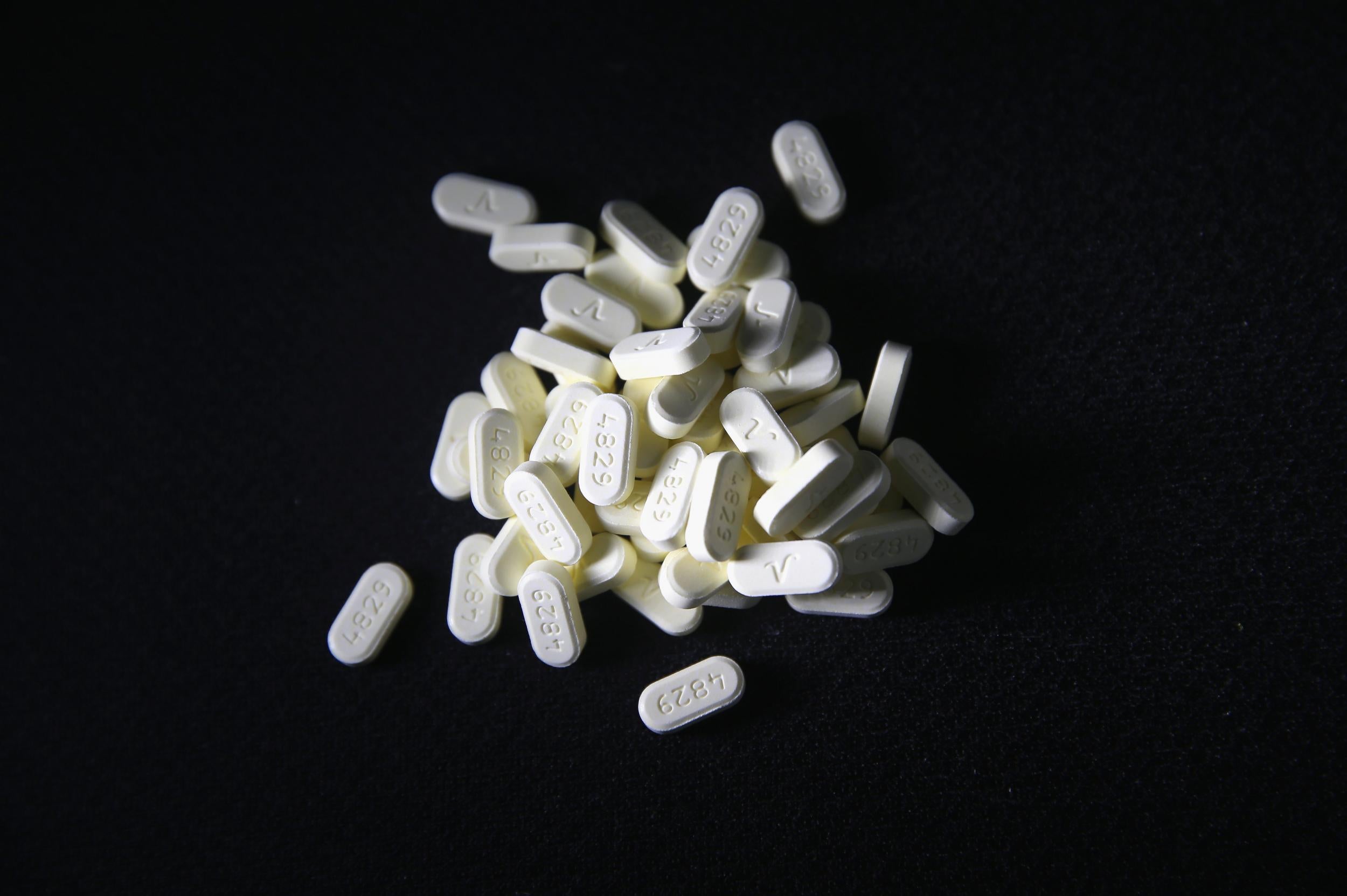Too many people are quietly self-harming with their overprescribed opioid painkillers – and the NHS won't do anything about it
My elderly aunt and one of my close friends take tramadol every single day. It makes them drowsy and unable to concentrate, yet they are offered no alternative


With the average doctor’s appointment lasting nine minutes and 33 seconds in the UK (the shortest time in Europe), what can a hard-pressed GP do when faced with an elderly woman in severe pain but write out a prescription? In our cash-poor NHS, where’s the time or resources for a concerted effort to deal with the chronic pain associated with so many mental and physical conditions?
One in seven of us complain of moderate to severe pain, and that number rises as we get older. Getting out of bed, walking up and down the stairs, trying to unscrew a jar or open a door – all of these activities become more difficult as our joints seize up, and can cause extreme discomfort. We can’t sleep and can’t work. No wonder we want relief.
New data shows that a record number of NHS prescriptions – 1.1 billion – were handed out last year, the highest figure since records began 10 years ago. Behind those shocking statistics lurk some worrying trends: a 27 per cent increase in the use of painkillers in particular, when it is well documented that they cease to act effectively the longer they are used.
A study of 50,000 NHS patients in England by the Public Health Consortium found that two-thirds who regularly used prescription painkillers were women, and that most older people were using them for far longer than 30 days. In 2000, a course of highly addictive opioid painkillers like tramadol or codeine lasted 64 days on average; by 2014 the average course had increased to 104 days and the number of patients using them had doubled.
Later this month, the NHS board will meet to decide whether to stop prescribing some over-the-counter pain remedies such as paracetamol and ibuprofen. This move is driven by financial pressure, not the wellbeing of patients. Recently, budget restrictions resulted in the NHS announcing they’d no longer prescribe homeopathic and herbal remedies, or vitamins and supplements such as fish oil and glucosamine, and chondroitin, which are used to alleviate arthritic pain.

At present, a paracetamol prescription costs the NHS over £3 to dispense, but a packet of unbranded pills costs a few pence in most supermarkets. When my friend left hospital recently with a broken ankle, he was handed a huge carrier bag of drugs to last six weeks, including painkillers (codeine and paracetamol), blood-thinning injections and statins. He could have handed them out to anyone – and people often do. Crime figures show that one in eight of us have taken someone else’s prescription drugs.
People regularly abuse the stated dose of paracetamol without a thought, and yet a recent study of 29,000 patients revealed that the drug can alter our emotional response to situations as well as affecting memory capability. The authors described their findings as “alarming”.
Another study linked regular use of paracetamol and ibuprofen to an increased risk (up to 20 per cent) of cardiac arrest. The authors wanted dosage to be limited to 1200mg (six pills) of ibuprofen a day, and suggested the drugs should not be sold in supermarkets or petrol stations, only in small packets in pharmacies.
But the really worrying new NHS statistics involve the overprescription of opioid painkillers. How many older relatives or friends do you know who are hopelessly addicted to tramadol patches for their arthritis or back pain? I know from experience, because (before I was diagnosed with an inflammatory factor in my blood), I was prescribed huge amounts of tramadol in my forties and fifties.
I’ve probably taken every painkiller going for back and joint pain, and none of them worked after a few weeks – you just get constipated and then addicted to powerful sleeping pills like zopiclone because you can’t sleep. Nowadays I occasionally take one paracetamol, and no longer take anti-inflammatories for arthritis either.
My elderly aunt and one of my close friends, however, take tramadol every single day. It makes them drowsy and unable to concentrate, yet they are offered no alternative.
Pain management is a complicated process, and one which the NHS seems to have opted to fail at. The BMA has called for 15-minute appointments, but at the current rate it will take us until 2086 to achieve that and spend time listening to the real reasons behind pain.
Overprescription of painkillers is particularly serious in poor areas in the North of England and among the elderly. In effect, the NHS has decided to create a huge number of opiate addicts because they can’t see another solution.
There’s not enough information about the misuse of all painkillers in the UK, considering so many of them are ineffective or linked to other mental and physical conditions. In the US, opiate misuse is linked to 78 deaths every single day. Here, the number of deaths each year from tramadol are in the hundreds.
But something far more worrying is happening: a large section of the population are quietly self-harming through the overprescribing of painkillers. Thousands are sitting numbed and dumb and still in pain because the NHS has opted for a quick-fix solution.
Join our commenting forum
Join thought-provoking conversations, follow other Independent readers and see their replies
Comments
Bookmark popover
Removed from bookmarks